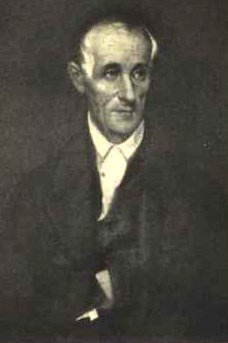Is every Orwell an Orwell?
Can we justify a distinction between the ‘is’ of identity and the ‘is’ of predication
Can we justify a distinction between the ‘is’ of identity and the ‘is’ of predication

What, if anything, is wrong with with the strategy of Resolution through Rational Reinterpretation? And why are most theologians so cold towards this strategy, while most Christian philosophers love it? Consider this quote by Moses Stuart on one of Leibniz’s takes on the Trinity:
The celebrated Leibniz was requested by a Loefler, who had undertaken to refute the writings of a certain English Antitrinitarian, to give him an affirmative definition of the persons in the Godhead. He sent for answer the following: – “Several persons in an absolute substance numerically the same, signify several, particular, intelligent substances essentially related.” On farther consideration, he abandoned this, and sent a second, which was, – “Several persons, in an absolute substance numerically the same, mean relative, incommunicable modes of subsisting.”
If Leibniz actually understood this, I believe he must have been a better master of metaphysics than any person who has ever read his definition.Read More »Dealing with Apparent Contradictions: Part 8 – Rational Reinterpretation, cont.
Can we establish on historical grounds that the historical Jesus thought that he was God?
How many times have you seen one of these offered as an explanation or illustration of the doctrine of the Trinity? There’s a good article about these here, complete with some links to real medieval examples. Basically, this sort of Shield of Faith (Latin: scutum fidei) diagram seems to have originated in the high middle ages, with the intention of illustrating the doctrine. In general,… Read More »Ye Olde Trinity Diagram: The Shield of Faith
Now, to resume our drawn out and often-stalled series on Richard of St. Victor, in which we blog through th e entirety of book III of his De Trinitate (On the Trinity), in which he famously / notoriously argues for the Trinity from reason alone. These chapters, like many preceding ones, are too compressed, so I’ll try to unpack them for us.
e entirety of book III of his De Trinitate (On the Trinity), in which he famously / notoriously argues for the Trinity from reason alone. These chapters, like many preceding ones, are too compressed, so I’ll try to unpack them for us.
In chapter 23, Richard says that between the members of the Trinity “there seems to be more identity [sameness] than equality.” (p. 395) He then cites as an example three indistinguishable golden statues. Because they’re indistinguishable, we say they are “equal”. But there are three masses of gold involved, and so there are really three things here, three statues. But the case of the Trinity is different, he urges. How? Because “whatever is in any one person of the Trinity, the smae is also completely in any other person.” Here, he implies, we do have a deeper kind of “identity” or “sameness”.
I take it that Richard’s point is that the three Persons of the Trinity don’t differ as far as their composition, because each contains one and the same divine nature, here thought of as a particular.
He then brings up a case of “three rational spirits”, three souls. Read More »Richard of St. Victor’s De Trinitate, Ch. 23
“…in the New Testament Jesus is not worshiped ‘as God’ (whatever that may mean) but, instead, with reference to God, as the Son of God, as the Lord appointed by God…”
An interesting little exchange between Origen and the pagan critic Celsus about the god of Christians.
What is the main thesis of the earliest Christian gospel?
The Father ain’t the Trinity. So, God can’t be both.
Rebutting a slanderous and careless “review” by a blogger.
Some friendly disagreements about the prodigal son, women in Luke, and the deity of Christ in Luke.
“…in Dr. Craig’s view…the only true god would be something other than the one who Jesus identified as the only true god, as his own god, and as the god of his followers.”
 In a recent post I put forward my own preferred version of “Leibniz’s Law,” or more accurately, the Indiscernibility of Identicals. It’s a bit complicated, so as to get around what are some apparent counterexamples to the simpler principle which is commonly held.
In a recent post I put forward my own preferred version of “Leibniz’s Law,” or more accurately, the Indiscernibility of Identicals. It’s a bit complicated, so as to get around what are some apparent counterexamples to the simpler principle which is commonly held.
Aside for non-philosophers: philosophers are usually after universal principles, truths which hold in all cases, rather than mere non-universal generalizations, i.e. rough rules of thumb which have exceptions. (An example of the latter: Boys love trucks.) Thus, when a philosophers makes a (universal) claim, other philosophers come along and try to show that it is false with “counterexamples” – real, or even merely possible, examples which show the principle to be false (as it doesn’t apply to them). For example, if someone says that all Texans love tacos, a counterexample to this would be a person who is from Texas and doesn’t like them. Just one counterexample is enough to show a universal claim to be false. When provided with a counterexample, of course, one will often refine, as it were, the original claim (e.g. All native Texans love tacos, or All Texans who appreciate Tex-Mex food love tacos) and the game goes on. This is all in the interest of discovering together what is true and what is false. (In my example, of course, those “refinements” would admit of easy counterexamples too.)
So my principle said, to paraphrase, that for any x and y, x just is (=) y, only if they don’t ever intrinsically differ. (I put this in terms of one having a “mode” at a time if and only if the other also has that mode at that time. Others would call these “intrinsic properties.”)
Here our friend, philosopher and blogger Brandon offered a counterexample, Read More »On an alleged counterexample to Leibniz’s Law – Part 1
In this episode, I walk you through an argument against confusing Jesus with his God.
 My “On Baukham’s Bargain” has drawn a response from my biggest fan, the Reformed brawler Steve Hays. I reply in the comments there.
My “On Baukham’s Bargain” has drawn a response from my biggest fan, the Reformed brawler Steve Hays. I reply in the comments there.
Given how many evangelicals have jumped on the Bauckham Bandwagon, I hope that it’ll get some serious discussion in the journals or elsewhere.
Here’s my first reply to his post:
Steve, it’s odd to spend so many words sniping at my summary of what Bauckham holds forth as advantages of his theory. e.g. After the seventh point (of Bauckham’s!) you object, “That’s a diversionary tactic.” Is that an objection to Bauckham?
Read all the way through, then think, and then, finally start objecting.
About the “fatal concession”, I’m afraid you’re mistaken. The time-explicit version of the indiscernibility of identicals is all I need to make the point.Read More »My diabolical “ruse” exposed – drat!
Check out this series of posts at the It’s In the Text blog reviewing The Son of God. In part, Charles Lee Irons, Danny André Dixon and Dustin R. Smith have written excellent essays, drawing their readers in by probing the very heart of ancient documents and dialogue with questions and propositions regarding the identity of Jesus of Nazareth. They have challenged, congratulated and clashed with each… Read More »review of The Son of God @ It’s In the Text
Last time, we saw the set-up from Leftow. He’s aiming at orthodoxy, which to him means theorizing in the tradition of the great medieval Latin-speaking theologians. He’s spent a good amount of ink defending the consistency of supposing that a person might travel back to the past, so that she, as it were, acts together with (nearby and at the same time as) her earlier… Read More »Leftow 3: “A Latin Trinity” – Part 2
 As pretty well summarized here by unitarian Theophilus Lindsey.
As pretty well summarized here by unitarian Theophilus Lindsey.
In the year 1694 began the great contest concerning the Trinity, betwixt two celebrated doctors of the church, Sherlock and South; each of them reputed and reputing himself orthodox, and each of them espoused by learned and powerful partisans.
Dr. Sherlock expressly asserted, that the three persons in the Trinity are three distinct, infinite Minds or Spirits, and three individual Substances. Dr. South held only one infinite eternal Mind or Spirit, with three Somethings that were not three distinct Minds of Substances, but three modes, faculties, attributes, relations, relative properties, subsistances, as there were variously denominated. Dr. Sherlock was accused, and with great justice, if words have any meaning, of polytheism, or holding three Gods. Dr. South, on the other hand, came under the imputation of explaining away the Trinity, and falling into the Sabellian or Unitarian system: and accordingly some of the Socinians took advantage of the Doctor’s explication of the doctrine of the church, and declared in their writings, that the should not be backward to give their approbation to the Liturgy and the Articles, if that was the kind of Trinity which the language therein used was intended to inculcated.
The university of Oxford, to whom Sherlock was obnoxious on account of his political principles, declared forRead More »the fate of “social” trinitarianism in late 17th c. England (Dale)
What is monotheism, anyway? This may seem like a stupid question, one with a trivial answer: belief in one god, or in one divine being. But we’ve seen in this series that it is by no means obvious what the concept of a god / divine being is. I hazarded an analysis of the concept of a divine being / god, an analysis which is… Read More »Jesus and “God” – Part 9 – What is monotheism?